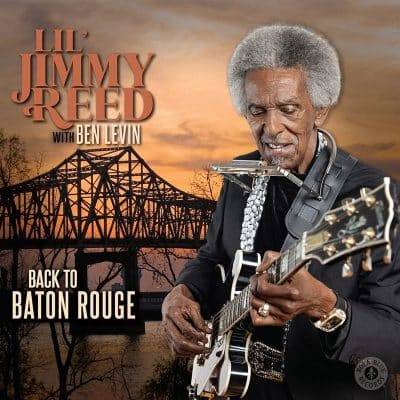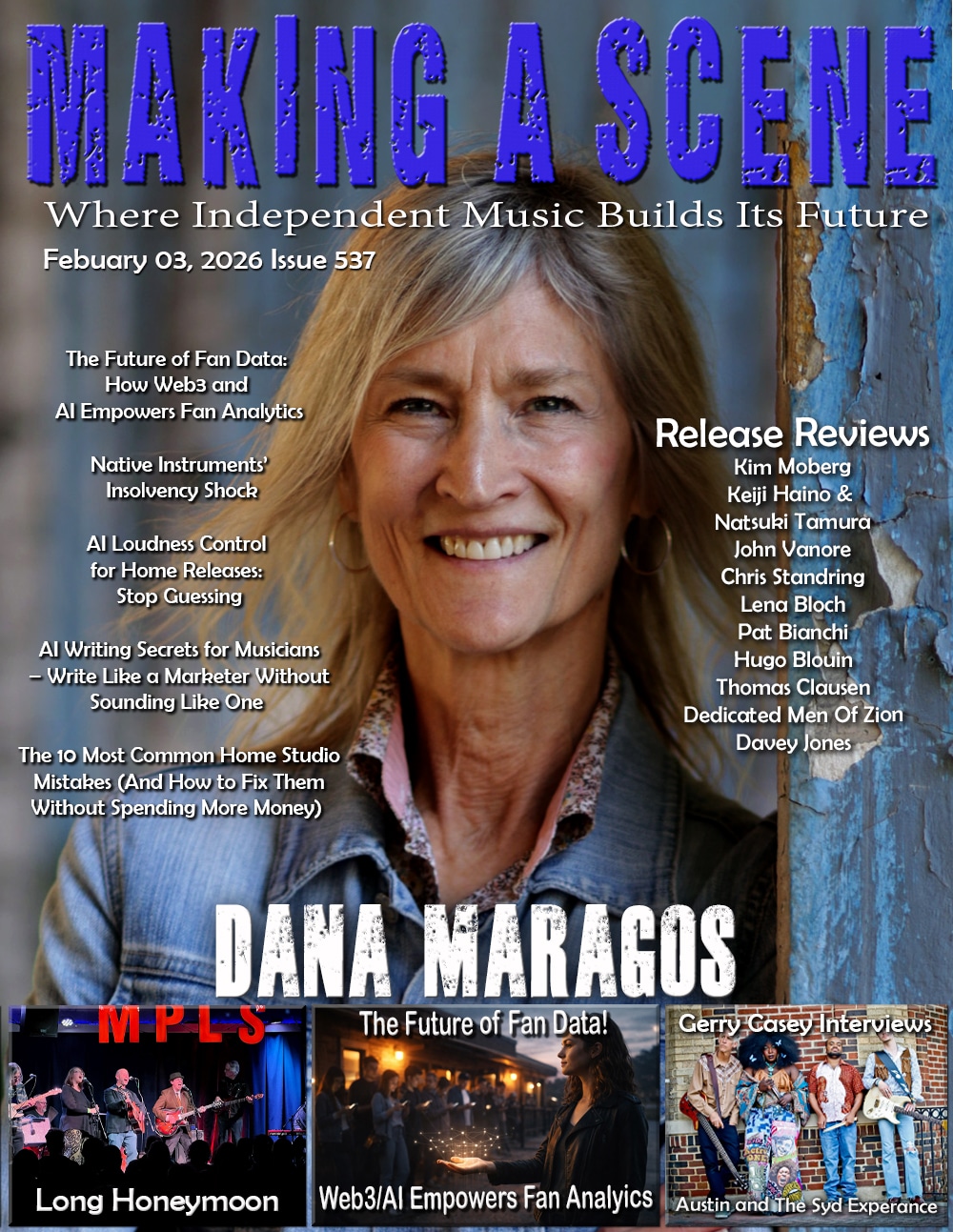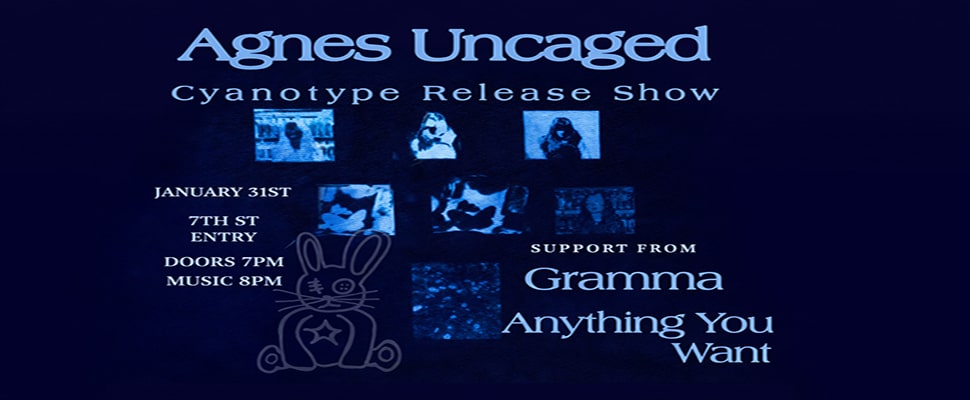Lil’ Jimmy Reed with Ben Levin Back to Baton Rouge
 Lil’ Jimmy Reed with Ben Levin
Lil’ Jimmy Reed with Ben Levin
Back to Baton Rouge
NOLA Blue
Pianist Ben Levin cut his fifth album last year while still attending his hometown University of Cincinnati. Guests on Take Your Time included Chicago blues luminaries Lil’ Ed Williams, Bob Stroger, and Rockin’ Johnny Burgin. Lil’ Jimmy Reed, one of the elder statesmen of Louisiana blues, was also in the house taking the lead in voice and on guitar on three of the album’s rollicking highlights. Reed, at a spry 85, hit it off famously with Levin, despite the 62-year gulf between them. By appearances, Levin possesses the kind of affable personality that translates to a natural touch with blues piano playing. Thus, Back to Baton Rouge, which will reportedly be Reed’s last album, swings with ease through five new songs and five neat covers, the latter batch including three by Reed’s namesake, the legendary Jimmy Reed. Ever since he first took the stage professionally as an eleven-year-old, Levin has turned heads. His enlightened style combines elements of Professor Longhair, Pinetop Perkins, Otis Spann, and Ray Charles. Engaging, to say the least.
Born in a shotgun shack, Reed too began performing for a living while in his teens. One night early on, filling in for Jimmy Reed at a chitlin circuit club, he was dubbed Lil’ for his innate skills and likable style. Reed recounts the 1958 episode here during “They Call Me Lil’ Jimmy,” underscoring the memory with still-piercing guitar amid a lowdown bumpy roll of a groove. The band, including Levin’s dad Aron Levin assisting Reed on guitar, and bassist Walter Cash, Jr. and drummers Ricky Nye or Miss Shorty Starr providing the locomotion, throws a perfect, understated spotlight on Reed. They set that tone with the classic Jimmy Reed romp, “Down in Virginia.” Levin plays delightfully through it, also deferring to Reed but still sparkling. On “Wish You Wouldn’t,” co-written with Reed, his notes tumble out sounding like a fistful of diamonds thrown.
Reed also still blows strong, melodic harmonica, especially sweet in tone during Jimmy Reed’s “I’m the Man Down There,” thought to be Reed’s answer to Elmore James’ “One Way Out.” The sauntering beat of it here is certainly less frenetic than James’ “One Way Out,” but nonetheless real, hard, excellent blues music. That and the minor key Levin/Reed co-write “Engine Light” ring out as basic examples of the basis of the blues and its captivating reach, rendered with authentic talent. Reed has not only been a committed and striking bluesman for as long as he has but took a sabbatical from it to serve his country for ten years. So ultimately, Back to Baton Rouge celebrates—with excellence—a life well-lived, and music that will live on.
Tom Clarke for MAS
Buy Us a Cup of Coffee!
Join the movement in supporting Making a Scene, the premier independent resource for both emerging musicians and the dedicated fans who champion them.
We showcase this vibrant community that celebrates the raw talent and creative spirit driving the music industry forward. From insightful articles and in-depth interviews to exclusive content and insider tips, Making a Scene empowers artists to thrive and fans to discover their next favorite sound.
Together, let’s amplify the voices of independent musicians and forge unforgettable connections through the power of music
Make a one-time donation
Make a monthly donation
Make a yearly donation
Buy us a cup of Coffee!
Or enter a custom amount
Your contribution is appreciated.
Your contribution is appreciated.
Your contribution is appreciated.
DonateDonate monthlyDonate yearlyYou can donate directly through Paypal!
Subscribe to Our Newsletter
Order the New Book From Making a Scene
Breaking Chains – Navigating the Decentralized Music Industry
Breaking Chains is a groundbreaking guide for independent musicians ready to take control of their careers in the rapidly evolving world of decentralized music. From blockchain-powered royalties to NFTs, DAOs, and smart contracts, this book breaks down complex Web3 concepts into practical strategies that help artists earn more, connect directly with fans, and retain creative freedom. With real-world examples, platform recommendations, and step-by-step guidance, it empowers musicians to bypass traditional gatekeepers and build sustainable careers on their own terms.
More than just a tech manual, Breaking Chains explores the bigger picture—how decentralization can rebuild the music industry’s middle class, strengthen local economies, and transform fans into stakeholders in an artist’s journey. Whether you’re an emerging musician, a veteran indie artist, or a curious fan of the next music revolution, this book is your roadmap to the future of fair, transparent, and community-driven music.
Get your Limited Edition Signed and Numbered (Only 50 copies Available) Free Shipping Included
Discover more from Making A Scene!
Subscribe to get the latest posts sent to your email.








